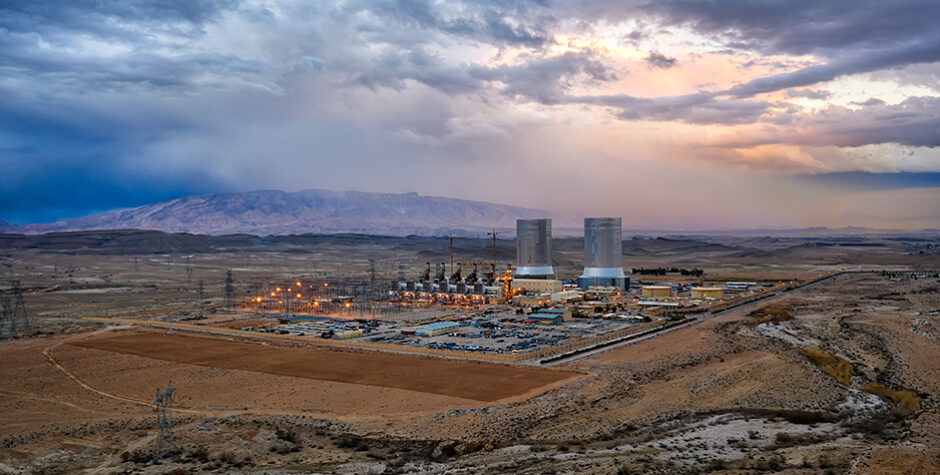Dangers and Challenges of Reviving the Iran Nuclear Deal EXPOSED
Last Saturday the multinational talks on reviving the JCPOA (Iran Nuclear Deal) began again in Vienna. The remaining signatories of the flawed agreement (Iran, Russia, China, France, Germany, the United Kingdom, and the European Union (EU)) are meeting together, while the United States representatives meet in a separate location as the group engages in shuttle diplomacy. Iran refuses to meet directly with the U.S. team. It is the sixth round of talks led by Enrique Mora, a EU foreign policy official, who stated he expects the deal to be completed in this round of talks.
The Biden Administration is intent on reaching an agreement even though Iran is violating the original agreement and demands that the U.S. lift all sanctions as a condition to reaching any new agreement. Just before the talks began last week, the U.S. Administration actually lifted some of the sanctions. The U.S. lifted sanctions on three Iranian officials and several Iranian energy companies in a questionable strategy to inject new momentum into the negotiations. Due to flaws in the original agreement and Iran’s continued pursuit of nuclear weapons, the Trump Administration had withdrawn from the JCPOA and imposed sweeping sanctions on Iran.
Germany is pressing the United States to rapidly come to an agreement; and China’s top envoy said the main sticking point was U.S. sanctions, stating: “Our message to them [the United States] is that they should stop shilly-shallying by moving decisively to sanction lifting.” There was no comparable call for Iran to stop their research and development of nuclear technology and for the rogue nation to stop enriching uranium at levels not allowed by the JCPOA.
However, in Vienna, the head of the IAEA (the U.N. top nuclear watchdog group) issued a sober warning: “We have a country that has a very developed and ambitious nuclear program, which is enriching at very high levels, enriching uranium at very high levels, very close to weapons grade.” The original JCPOA also forbids U.N. inspectors from inspecting any Iranian military sites—the most probable places for Iran to hide its weapons programs. Additionally, in violation of U.N. restrictions, Iran continues its development of ballistic missiles capable of carrying nuclear weapons. U.S. Secretary of State Antony Blinken told U.S. lawmakers, “We don’t know, at this stage, whether Iran is willing and able to do what it would need to do to come back into compliance.”
Iran continues to export terror worldwide and call for the destruction of the State of Israel. In the recent attacks on Israel, Hamas boasted that they could not have carried out the attacks without help from Iran, as it fired thousands of rockets on civilian populations in Israel. Reports state that Iran financially supports Hamas to the tune of $30 million a month.
Alarmingly, Fox News obtained satellite images that show activity at one Iranian site that is suspected of manufacturing “shock wave generators”—devices that would allow Iran to miniaturize a nuclear weapon, a necessary step in using missiles to deliver nuclear weapons. The clock is ticking as Iran marches unabated toward possessing its first atomic weapons. Without strong actions from the international community led by the United States, the world’s most dangerous country may soon possess the world’s most dangerous weapon.
But, not deterred by stark reality and Iran’s malevolent behavior, it is likely that the Biden Administration will conclude the talks in the coming days by reentering the agreement and giving into Iranian demands that sanctions be lifted. It defies logic and common sense. It ultimately jeopardizes the security of Israel, the region, and the United States. Even if the U.S. maintains sanctions on Iran’s Revolutionary Guard Corps (IRGC) and other isolated entities, lifting the other sanctions gives Iran the influx of cash it needs and allows Iran to quickly complete its development of nuclear weapons with complete impunity. It is a huge win for Iran and a huge loss for the peace and safety of the world.
This geo-political insanity must stop. If the United States lifts sanctions and Iran continues to work on its weapons programs with no price to pay, President Biden’s legacy will be to have made the world a much more dangerous place. No political legacy from the Obama years, no amount of denial or a desire to believe the best about one’s adversary, is worth what will be the ultimate outcome. Wishing for peace does not make peace. Wanting Iran to comply and cease its threats to the world will not make it so. The original JCPOA was hollow and unrealistic. There was virtually no way to guarantee Iranian compliance. But to double down on a colossal strategic error and to repeat the mistake is inexcusable. Our allies, also, will rue the day they pressured the United States to agree to a plan that is an existential threat to their own peace and freedom.
